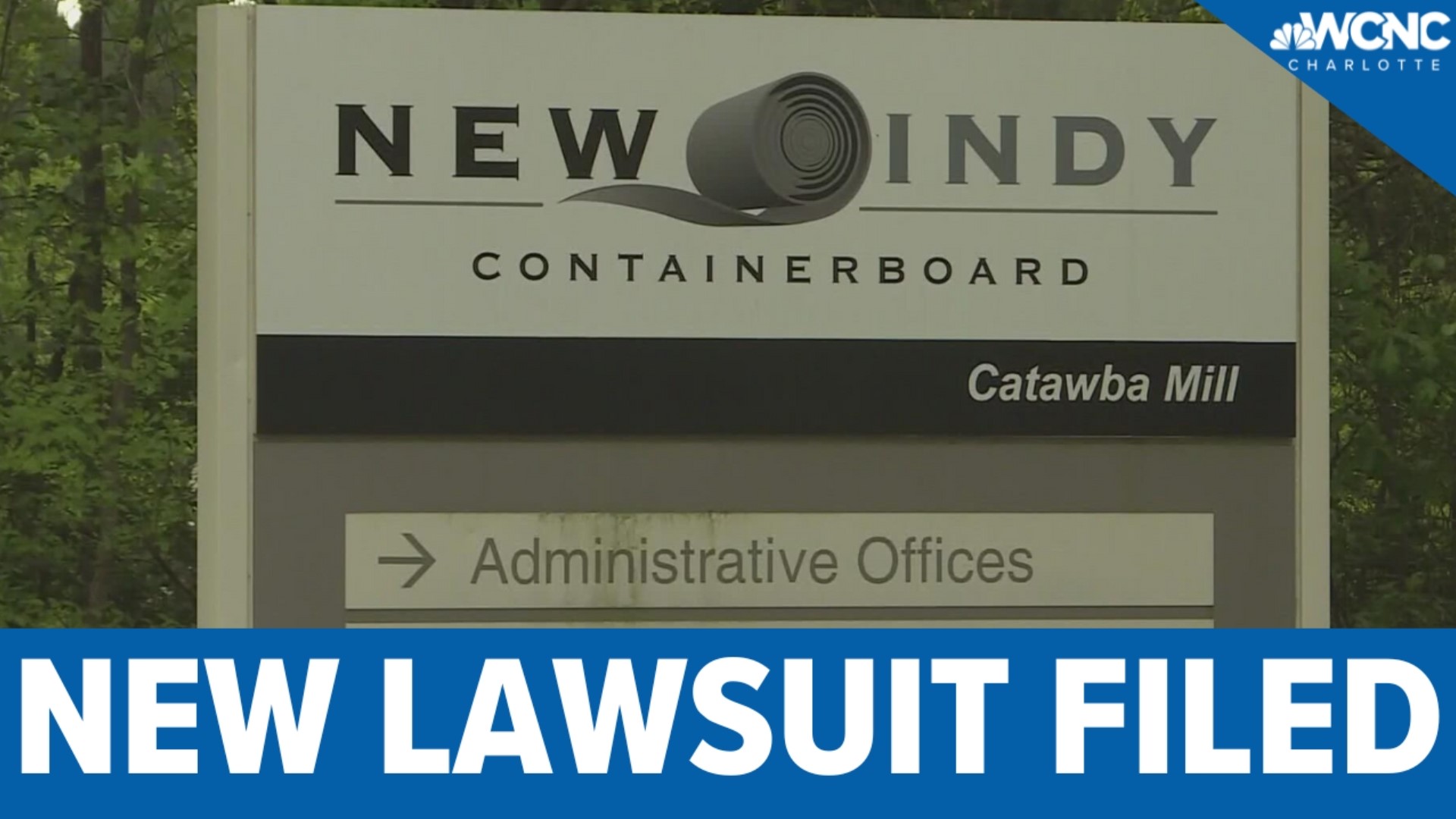CATAWBA, S.C. — After years of complaints over a pervasive rotten egg smell hanging over Catawba, South Carolina, New-Indy Containerboard is facing new legal action over alleged discharge from its facility into nearby waters.
According to a lawsuit filed Monday in the U.S. District Court for the District of South Carolina, six plaintiffs are asking for the factory's concerning practices to be curbed, civil penalties and other "relief." The plaintiffs allege New-Indy is releasing "dangerous substances" into the Catawba River.
The court document states that New-Indy "discharges millions of gallons of inadequately treated wastewater per day to the Catawba River, affecting potentially over one million citizens, residents, and workers in South Carolina and North Carolina."
WCNC Charlotte first reported on these water concerns in October, when a report commissioned by a law firm found up to 100 million gallons of groundwater containing toxins make their way into the Catawba River each year.
At the time, Mandy Powers Norrell, an avid kayaker and plaintiff in this latest case, said she was concerned about the water after the report possible dioxins -- toxic materials that can cause cancer if ingested in certain amounts.
"That’s offensive to me, that’s offensive to me on behalf of all my neighbors," Norrell said at the time.
New-Indy responded to the complaints in the October report with the following statement:
"New-Indy Catawba denies the baseless accusations that were irresponsibly made in the October 26 report in The Charlotte Observer and The State newspapers that dioxin is seeping into the Catawba River from the mill property. This accusation was leveled by trial lawyers to gain leverage in ongoing litigation and is demonstrably false.
Dioxin is a highly toxic chemical. Small amounts of the compound were left on the property by a previous owner of the facility, a byproduct of the bleaching process used by the Bowater mill (and many other mills throughout the U.S.) to make white paper. That practice was discontinued nearly 20 years ago. At no point since New-Indy acquired the mill on Dec. 31, 2018, has the facility produced dioxin.
New-Indy Catawba has spent considerable time and effort to identify the areas on the mill property where the compound is located and to confirm that it is not migrating from the property, including through groundwater. New-Indy Catawba maintains 15 wells throughout the mill property so that it can carefully monitor dioxin levels. The mill regularly reports the results from those monitoring wells to the South Carolina Department of Health and Environmental Control.
The most recent report was prepared for New-Indy in June 2022 by S&ME., Inc., a South Carolina-based environmental engineering firm. That report clearly shows that no hazardous level of dioxin was detected in any of the monitoring wells. In fact, the monitoring well with the highest concentration contained 1/15 the amount of dioxin that South Carolina permits in drinking water.
The aerial photograph of the New-Indy Catawba property shows the 15 monitoring well locations on site. The only well to detect a nominal amount of dioxin was R-29-MW-1, which is located more than a half-mile from the Catawba River."
Contact Vanessa Ruffes at vruffes@wcnc.com and follow her on Facebook, Twitter and Instagram.

